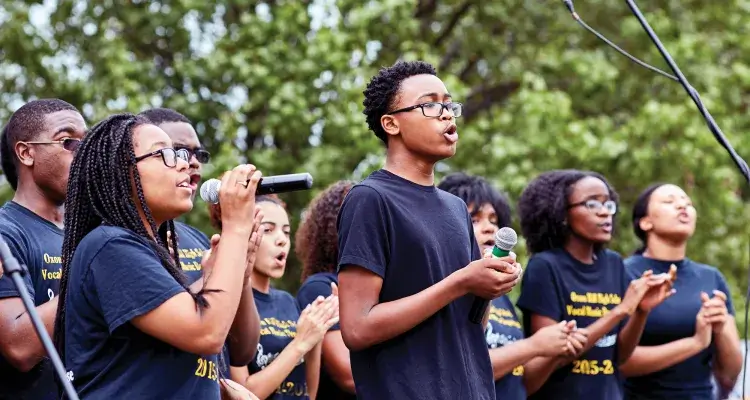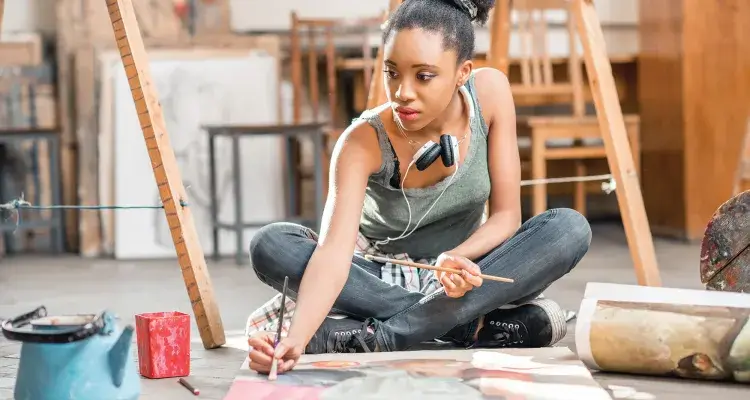Conclusion: The Art of the Imaginable
The American Academy’s Commission on the Arts generated this report at an extraordinary moment in American history. The nation has endured the coronavirus pandemic for over a year. No aspect of public life has escaped its catastrophic effects. Disease and loss of life have been COVID’s most tragic consequences, but there has been heartbreak, too, in the lost year of education and emotional development for our young people.
As America’s leaders work to restore the nation and its citizens to literal and figurative health, we urge them to contemplate the deep restorative value of arts in education. The arts are essential to developing the minds and souls of young people. Arts education was already in a state of crisis and dire need before the fraught year of 2020, and the pandemic has intensified that crisis exponentially. We regard our report as a celebration of the arts, a gesture of optimism, and, above all, a call to action.
America is at a crossroads. We are a nation searching for meaning, a sense of belonging, and a set of principles to tether ourselves to. Continuing to deprioritize arts education will only deepen divisions where we desperately crave recovery and healing. At a moment characterized by isolation, disillusionment, and instability, the arts can be a catalyst for change in education. Even as they build connection and shared experiences, the arts are a vehicle for subversion and questioning the status quo. The arts can illuminate the complexities of our shared experience and our fraught history. They teach us to be critical and thoughtful members of our communities and to strive constantly for the ideal.
As the personal stories presented throughout this report attest, through the arts we embrace habits of self-discovery, nuance, and the pleasures of doubt. The arts move us beyond superficial concepts of tolerance and toward a true acceptance of others and a celebration of our differences. Amid a set of crises where these qualities may seem especially elusive, they remain attainable, if one knows where to look. A more hopeful, empathetic, and imaginative future is possible; we need only choose it.

